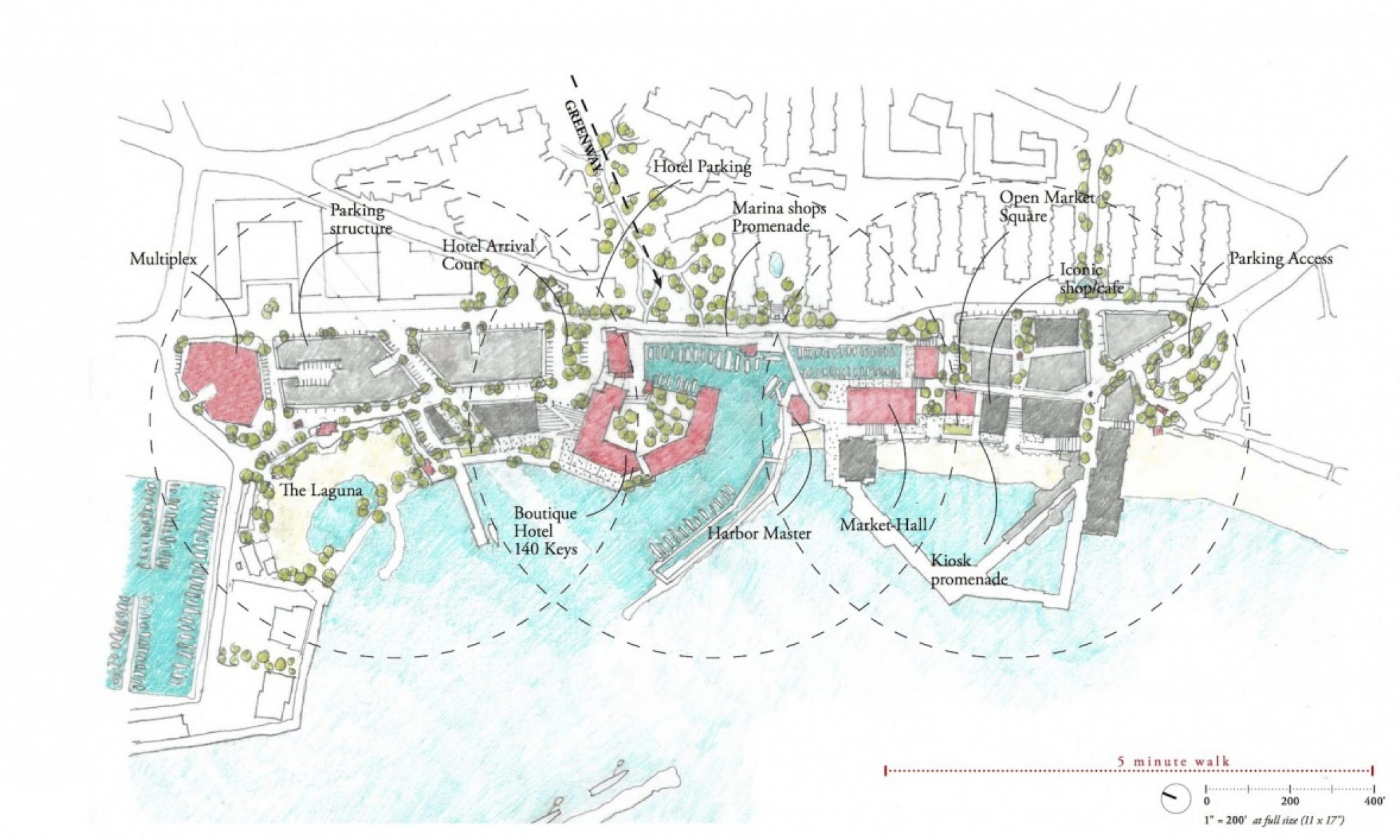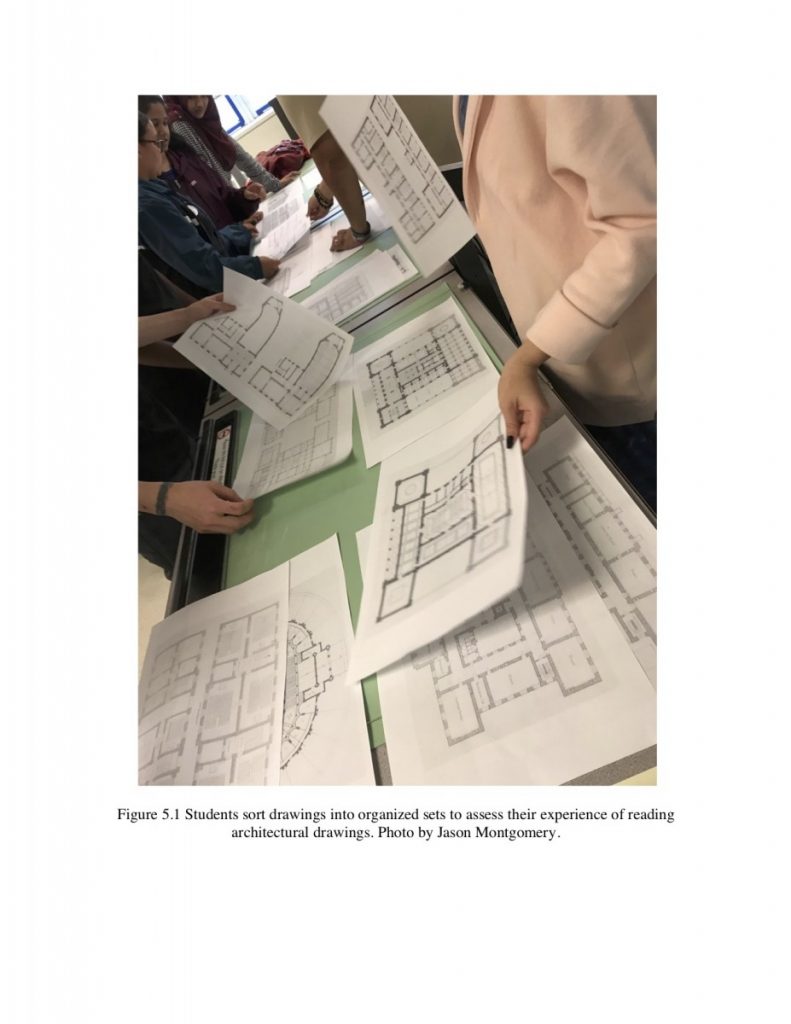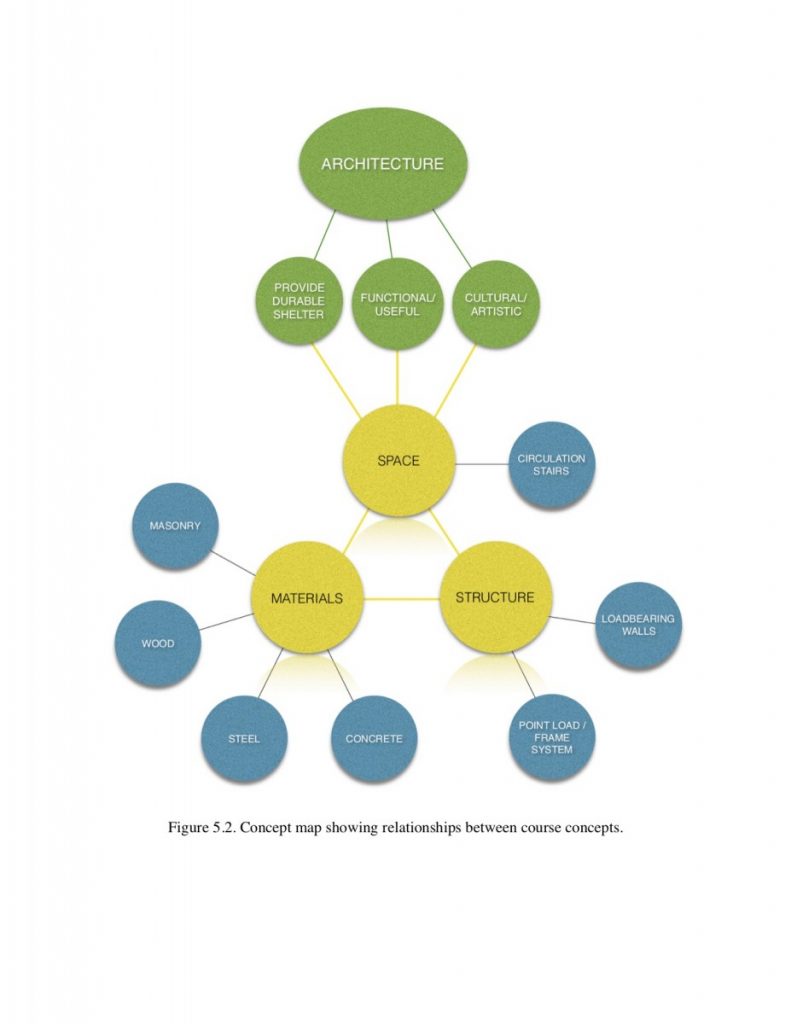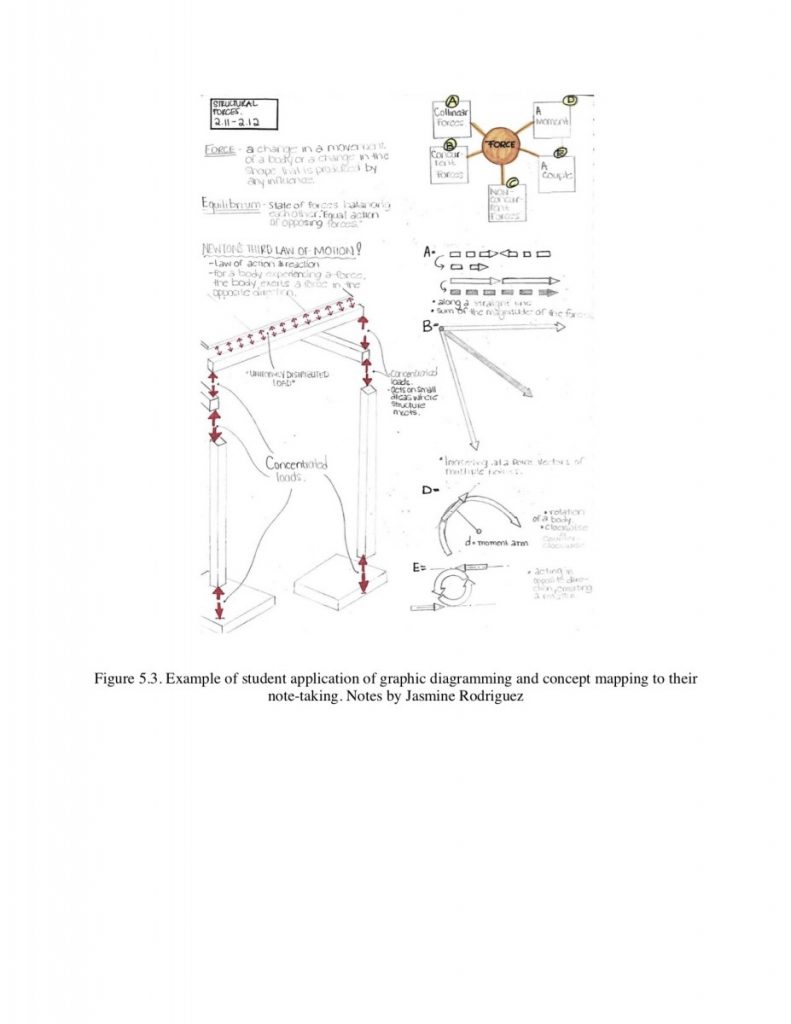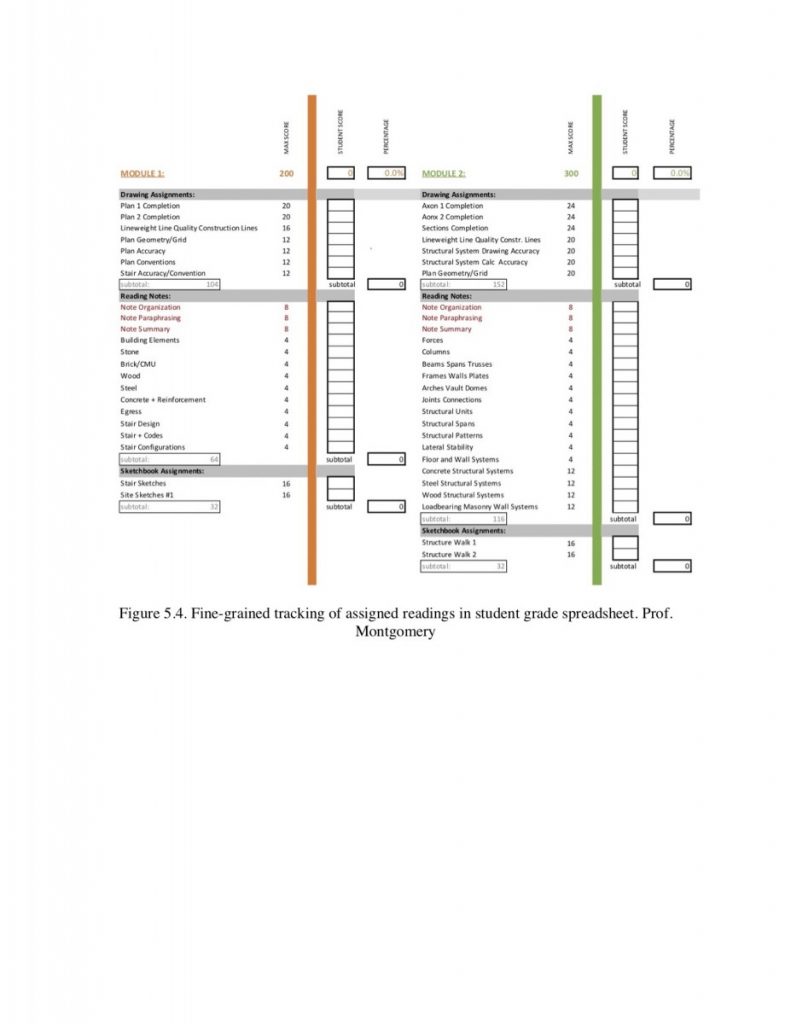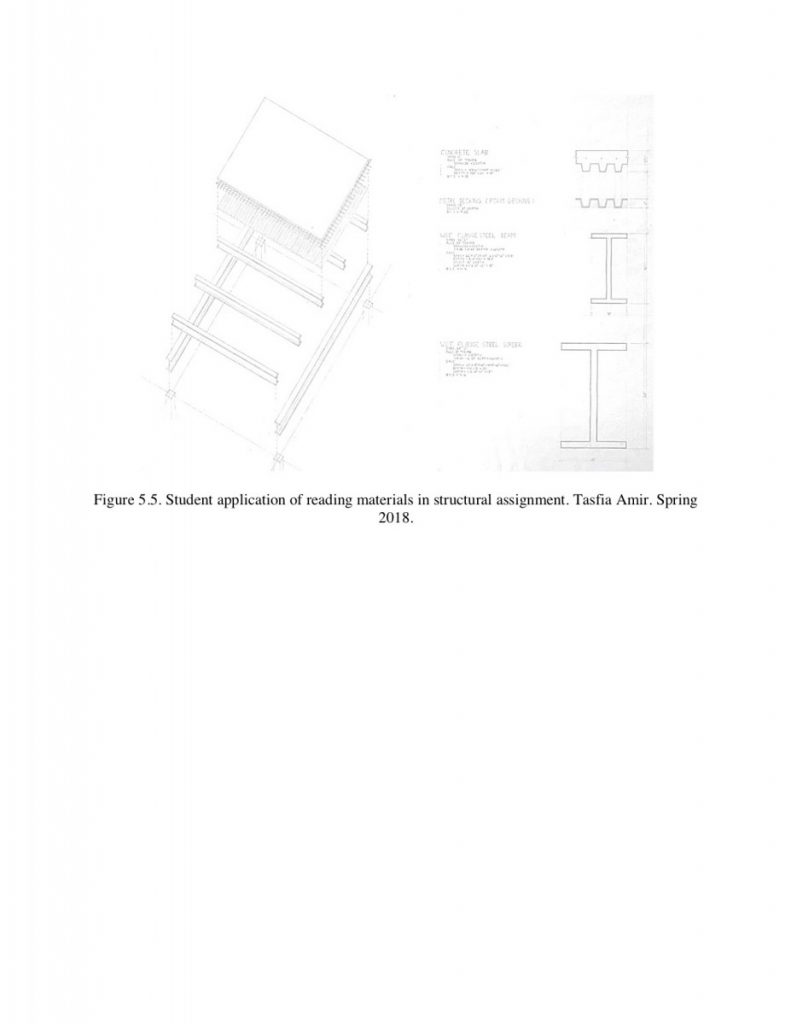Editor: Juanita But
-
- Montgomery, Jason. “Chapter 5 Teaching a Broad Discipline: The Critical Role of Text Based Learning to Building Disciplinary Literacy in Architectural Education”, Teaching College-Level Disciplinary Literacy: Strategies and Practices in STEM and Professional Studies, edited Juanita But, Palgrave Macmillian/Springer, forthcoming spring 2020.
Manuscript: 05 Chapter 5_20191028_Montgomery_file
Book Chapter Status: Draft Finalized for Submission to Publisher, Issued to Prof. Juanita But for submission.
Book Chapter Manuscript: Accessible on DVD/CD in File.
Book Work Title:
Chapter 5 Teaching a Broad Discipline: The Critical Role of Text Based Learning to Building Disciplinary Literacy in Architectural Education
Chapter Abstract:
Architecture is a demanding discipline with multiple, complex concerns and identities shaping the profession. The discipline requires analysis of complex and multifaceted issues and synthesizing broad knowledge through a focused creative process. While the 21st century education may leverage many sources to educate students of architecture, texts remain the primary repository par excellence of the rich and diverse body of knowledge and ideas that continue to inspire and ground architects, theorists, historians, planners, policy makers tied to the discipline. Perusing and engaging with the diverse body of architectural literature is a strong approach to support one’s learning to think, speak, and write in the discipline with a high level of fluency and expertise. Yet reading, the foundational skill that provides access to the literature is often overlooked in the development of curriculum and the pedagogy of architectural education. This chapter explores in detail the challenges that inhibit student reading and reading effectiveness followed by strategies for building student reading skills in architectural education to support increased disciplinary literacy. Central to the strategies discussed is increased integration of text-based learning and explicit foregrounding of reading and study tools to support students learn through text. Key learning principles that serve a foundational role in text-based learning are analyzed to underpin the strategies discussed. Finally, two case studies are provided that exemplify the integration of strategies that support increased disciplinary literacy in architectural education.
Historic modes of teaching in higher education are heavily reliant on reading, lecturing, and examination. Colleges and universities that serve populations who are less prepared for college level courses find that these historic modes of teaching do not address all the learning needs of their students for the following reasons: students often struggle to afford textbooks or see them as unnecessary, students lack the skills, prior knowledge, and discipline specific vocabulary to tackle challenging reading material, under-prepared students gain little when they are passive audience members in the lecture hall or are distracted by electronic devices, examinations often do not clearly reveal the struggles that undermine student performance. These challenges are most acute in first year college courses. Faced with these challenges that hamper learning, faculty must seek alternative teaching strategies. This chapter will analyze these challenges and discuss alternative strategies that improve student learning outcomes. This chapter will use a technical course in architecture as a case study. In this context, the skill of effective and active reading will be expanded to include reading drawings, a critical skill for students of architecture.
Contract Confirmation Email: Re: Book contract – Jason Montgomery
Chapter Title: Teaching a Broad Discipline: The Critical Role of Text Based Learning to Building Disciplinary Literacy in Architectural Education
Book Chapter Contribution to: Teaching College-Level Disciplinary Literacy
Editor: Juanita But
Publisher: Palgrave Macmillan (in-contract)
Anticipated Publication Date: Spring 2020
Project Start Date: Spring 2019
Manuscript to Publisher: Oct 30, 2019
Consent to Publish Form: CTP-J. Montgomery
Correspondence with Editor: Re: READ Chapter_latest revision
